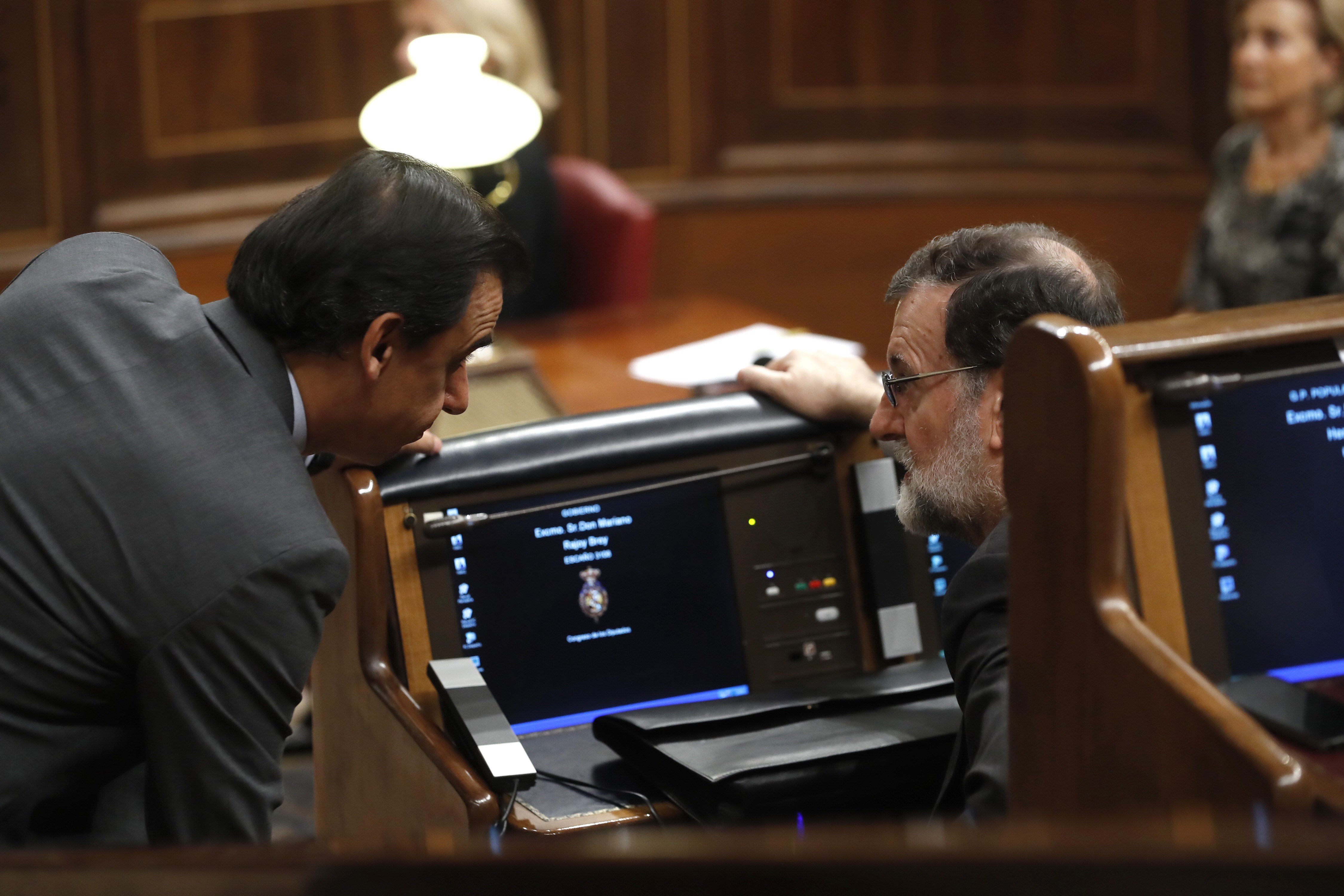With less than 24 hours to go before Mariano Rajoy moves ahead with applying article 155 of the Spanish Constitution and suspending Catalan autonomy, assuming Carles Puigdemont does nothing to revert his moves towards independence, the Spanish government has hinted at a last opportunity for the constitutional route to not be taken. According to central government sources, self-governance will not be suspended if Puigdemont calls Catalan elections, as this would be using the LOREG (Organic Law of the General Electoral Regime), which they interpret as a return to the law.
The sources explained this Wednesday that elections could only take place within Spanish law, as Catalonia has not developed its own and relies on the state's. That would mean the intervention of the Central Electoral Board to ensure any vote takes place with full guarantees. As such the Spanish government believes that such an act would be a de facto rejection of the path towards independence, although it doesn't take into account that part of the independence movement's road map also includes "constituent" elections.
That detail hasn't slipped past certain members of the central executive, however, who add an asterisk to the official version of the Moncloa, the prime minister's residence. Some prudently wondered if the scenario could be different if, after "violating" the Constitution and Spain's institutions, Puigdemont were to announce elections for a Catalan republic. Nonetheless, the official version remains that article 155 would be suspended anyway, regardless of how far along the process of applying the article is, as long as it's not fully enacted, which is expected to come at the end of next week with a meeting of the Senate.
Ciudadanos (Citizens) echo this position. "As if they're galactic elections", said a source from the party, as long as any vote is based on LOREG. They added that time would be against them otherwise, as the Catalan Parliament wouldn't have time to pass their own law, they believe. That said, the party's leader, Albert Rivera, admitted in the Congress that he didn't know what Rajoy's plans were, although he will support him regardless. It seems the Spanish prime minister has only confided in and negotiated with PSOE (Spanish Socialist Workers' Party), even though it was Rivera who spoke up to demand the application of article 155.
In this context, it's most probable that the Moncloa will announce measures to suspend self-governance on Thursday and that this afternoon they will hold a meeting with the different parties to give them initial details. Sources ask us to "not be guided" by reports that Spanish ministers will each assume their respective Catalan portfolio. That means that the most probable theory is that control of the Catalan government will be centralised in one person to call elections. The strongest theory is that the deputy prime minister, Soraya Sáenz de Santamaría, would be installed in Barcelona as this individual.

